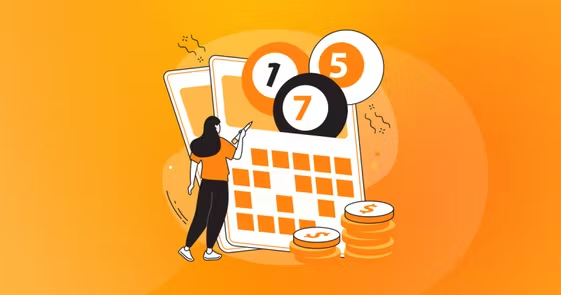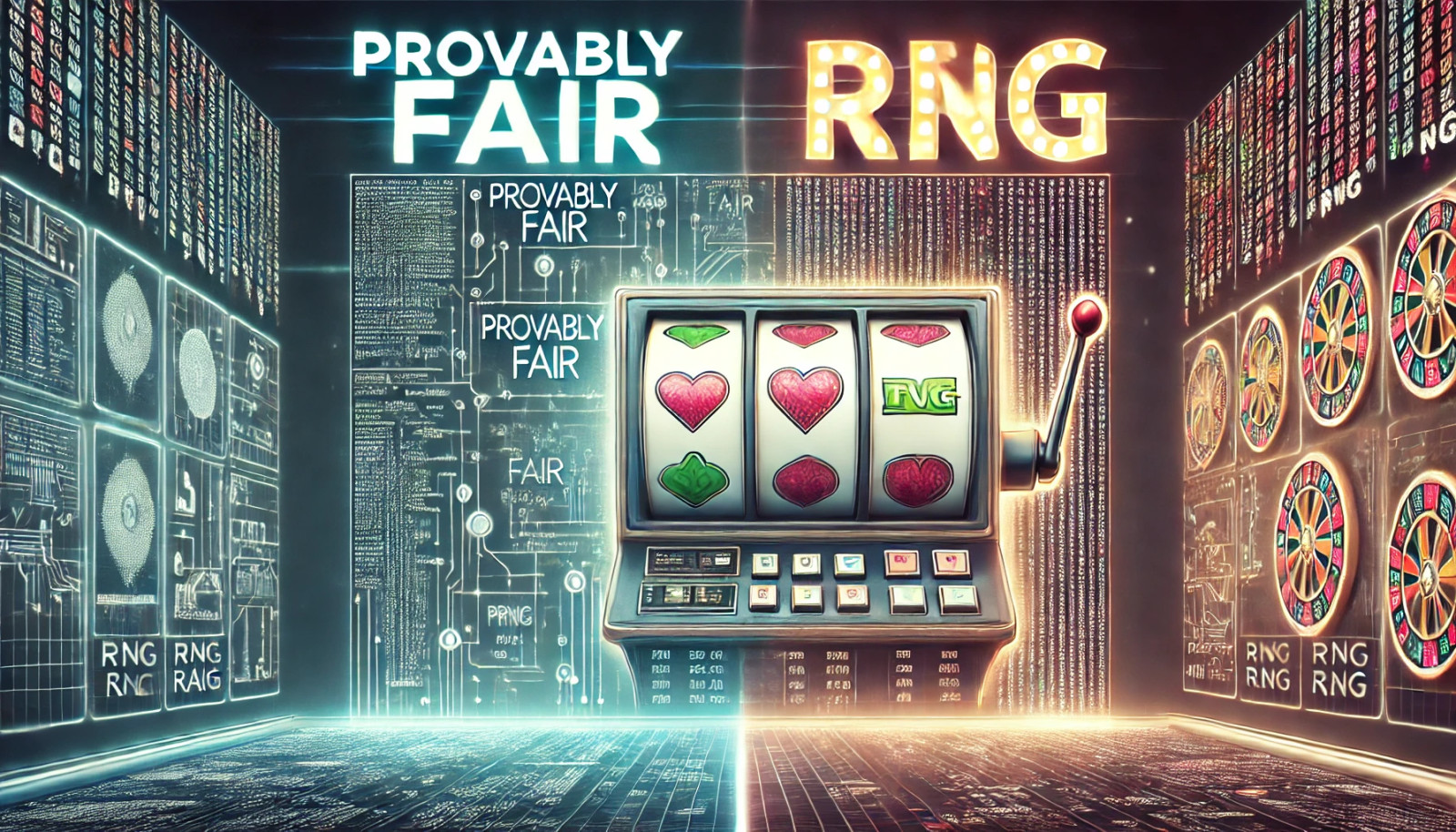
The emergence of Bitcoin and blockchain in the late 2000s revolutionised not only finance but also the iGaming industry. Faced with constant player concerns about rigged games, online casinos sought a solution. Blockchain's transparent and verifiable nature offered a breakthrough, leading to the development of the so-called Provably Fair gambling. This system empowers players to verify game outcomes, ensuring trust and fairness in the online gambling world.
In short, Provably Fair is a technology designed to instil trust between online gaming platforms and their players. At its core, it's a system that empowers players to independently verify the fairness and integrity of each game round.
Gone are the days of relying solely on the operator's word. With Provably Fair, every game outcome is backed by cryptographic algorithms, providing players with concrete evidence that the game was played fairly and without manipulation.
By employing advanced cryptographic techniques, Provably Fair ensures that:

Not quite. Both play crucial roles in ensuring fairness and unpredictability in game outcomes, but they operate in distinctly different ways.
Random Number Generators (RNG) are the classic method for creating randomness in games. They utilise complex algorithms to produce results that are unpredictable and seemingly random. These algorithms are designed to be a closed system, meaning that players cannot see the inner workings and must trust that the game is fair. This trust is built by game providers through rigorous testing and certification of their RNG setups, ensuring they meet industry standards for fairness and reliability.
Provably Fair (PF) systems, on the other hand, bring transparency to the forefront. While they also use randomness, they add a crucial layer of verifiability. In a Provably Fair system, every game outcome is accompanied by a “receipt” that details how the result was calculated. This allows players to independently verify the fairness of each outcome, fostering a greater sense of trust and transparency.
Using complex math and cryptography, Provably Fair guarantees that game outcomes are determined before players bet, preventing manipulation. This is achieved through a combination of random numbers generated by both the casino and the player, along with a unique identifier for each game, called variables.
At the start of each game, the server generates a random seed using a secure method. This is the ‘server seed’. The server seed is then turned into a string of characters using a process called hashing. This hashed seed is shared with you before the game starts. It’s like sealing the outcome of the game in an envelope and giving you the envelope.
When you play, your player seed is combined with the server seed. This combination, along with the nonce, determines the outcome of the game. This process uses complex algorithms to ensure the results are random and can’t be tampered with.
After the game, the server reveals the original server seed. You can then check this seed against the hashed version you received earlier to make sure they match. If they do, you know the game was fair.
Imagine you’re playing a game of online roulette. The casino generates a unique server seed that may look like this:
RmLFopQ4VBuKZiFq
and hashes it. You receive this hashed seed before you place your bet.
You also generate a player seed. When you place your bet, the game combines your player seed with the server seed and the nonce to determine the result. The wheel spins, and the result is shown. After the game, the casino reveals the original server seed. You can use this to check the hashed seed you received at the start. If they match, the game was fair.
It was originally designed for games where players bet against the house, but has since expanded to include player-versus-player (PvP) games and other multiplayer formats.
To be considered Provably Fair, a game must follow these core principles:

ROCKIT! and BOOM! are both new crash games developed by Gamingtec's GT Studios. These Provably Fair games involve players betting on an increasing multiplier and cashing out before the multiplier crashes. The excitement and strategy lie in predicting when to cash out to maximise winnings. Both games employ PF to ensure transparency and fairness.
How The Provably Fair Mechanism Works in ROCKIT!:
Verification Process:
After the round concludes, the player can verify the fairness of the crash point using these steps:
The Verification Process:
Before Round:
Server Seed (hashed): 9f8e7d6c5b4a3c2d1e0f1a2b3c4d5e6f
Client Seed: player456
Nonce: 0
After Round:
Server Seed (original): 5b4a3c2d1e0f1a2b3c4d5e6f9f8e7d6c
Client Seed: player456
Nonce: 0
Combined Seed: 5b4a3c2d1e0f1a2b3c4d5e6f9f8e7d6cplayer4560
Hash of Combined Seed: 9f8e7d6c5b4a3c2d1e0f1a2b3c4d5e6f
Verification:

Primedice is a widely recognized online dice game that utilises Provably Fair technology to guarantee the fairness of each roll.
How The Provably Fair Mechanism Works in Primedice:
iGaming platforms are the technological backbone of online casinos and sportsbooks. They are what runs in the background, holding together the places people go to bet and play in. Gamingtec offers its own online casino software called GT Casino. But the use of the Provably Fair technology doesn’t necessarily apply to the platforms themselves. Rather, it’s the gamification inherent to the platform that fosters Provably Fair.
So much so that it has, at present, become a widely adopted standard. In fact, when selecting an iGaming platform, brand owners are encouraged to seek out Provably Fair altogether. In any case, it does find limited application:
Online Casinos
Crypto Casinos
Crypto casinos are more likely to adopt Provably Fair due to the inherent focus on transparency and decentralisation in the cryptocurrency space. They also often offer a wider range of Provably Fair games compared to traditional online casinos.
Some crypto casinos even leverage blockchain technology to store game data immutably.
Online Sportsbooks (Bookmakers)
Provably Fair is less common in sports betting compared to casino games. This is because sports outcomes are influenced by real-world events and not solely determined by random number generation.
Some platforms might use Provably Fair for specific in-play betting markets or for random number-based promotions.
A common concern with Provably Fair is whether it can be hacked. The short answer: it’s highly unlikely. Here’s why:
The server seed, a critical component in the Provably Fair algorithm, is protected by advanced hashing techniques that convert it into a unique set of characters. This process ensures that even if the hash is intercepted, reverse-engineering it to discover the original server seed is nearly impossible. Cracking SHA-256 encryption is so complex that only a future quantum computer might achieve it—something still decades away.
Similarly, the player seed, chosen or generated by the player, is also securely handled. Provably Fair casinos enforce strict data protection measures to safeguard player data, preventing third parties, including hackers, from accessing or manipulating the player’s seed.
In summary, the security and the nature of both server and player seeds makes them extremely resistant to hacking attempts.
The future of Provably Fair technology within the iGaming industry is on an upward trajectory. As we look ahead, we can expect a growing acceptance of Provably Fair among both players and industry stakeholders. This increased awareness will undoubtedly foster trust in iGaming platforms.
All the while, the technological landscape is evolving, with Provably Fair poised to become integrated with emerging innovations such as Web3. The symbiotic relationship between Provably Fair and cryptocurrencies is anticipated to flourish, further solidifying the security and transparency inherent in Provably Fair systems.
As the industry expands globally, we foresee a corresponding growth in regulatory frameworks that acknowledge the importance of Provably Fair. Looking ahead, strategic partnerships and collaborations will be instrumental in propelling Provably Fair technology forward, ensuring its compatibility across various platforms.
The Gamingtec website utilizes cookies to store and access visitor information with the purpose of enhancing security and improving the browsing experience. If you do not wish for the collection of such information, you can toggle these off:
Necessary
Necessary cookies are essential for the website to function properly. This category only includes cookies that ensure basic functionalities and security features of the website. These cookies do not store any personal information.
Marketing
Marketing cookies track your online activity to help advertisers deliver more relevant advertising or to limit how many times you see an ad. Said information can be shared with other organizations or advertisers. These are permanent cookies and almost always of third-party provenance.
Analytics & Statistics
Analytical and statistical cookies are used to understand how visitors interact with the website. These cookies help provide information on metrics such as the number of visitors, traffic sources, etc.